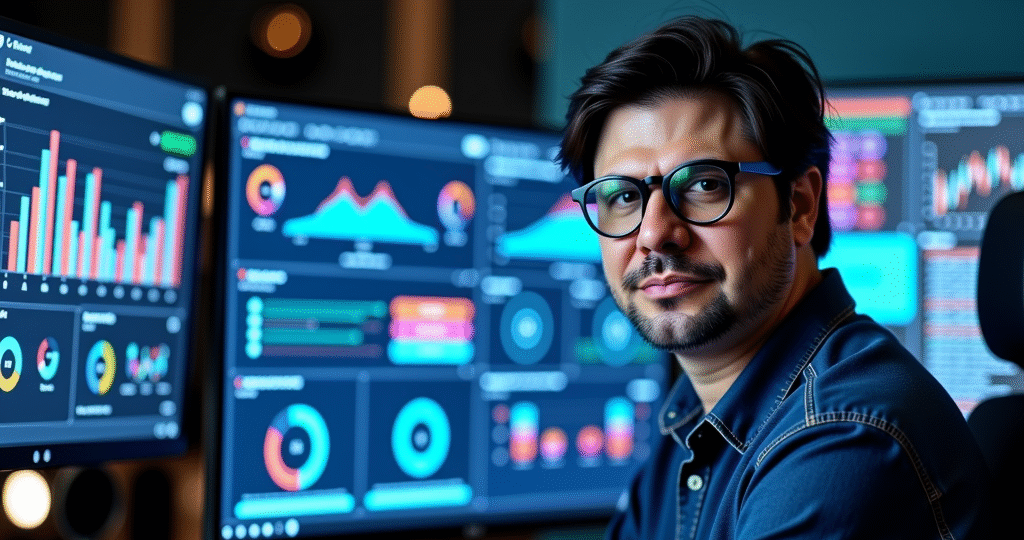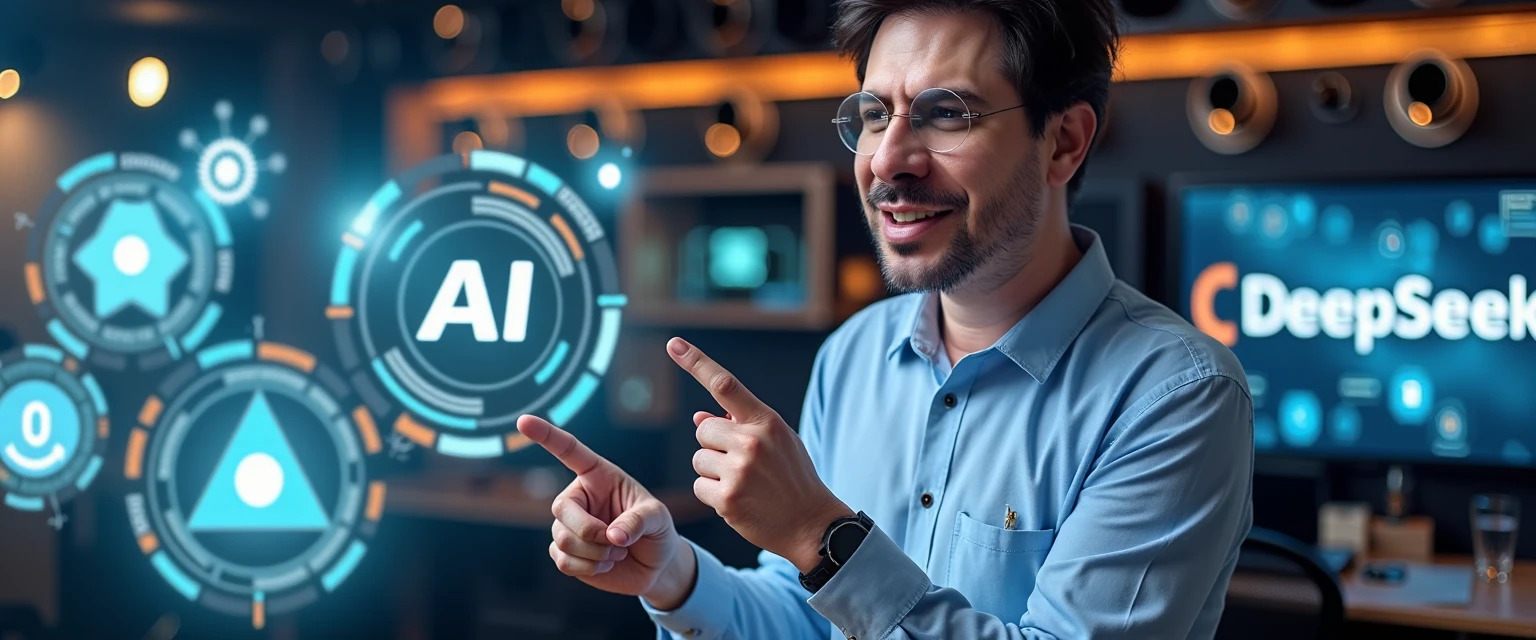621% of Workers Want to Automate Tasks with AI — Why This Reveals the Future of Work
July 19, 2025 | by Matos AI

While debates about deepfakes and speculative bubbles dominate the headlines, a revealing study goes almost unnoticed: 62% of American workers want to use AI to automate repetitive tasksThis seemingly simple fact hides a profound transformation that is happening right under our noses.
The Duality of AI: Between Promises and Pitfalls
The last 24 hours have been a perfect portrait of the duality that marks our relationship with artificial intelligence. On the one hand, Apple's AI detects pregnancy with 92% accuracy using only behavioral data from devices. On the other hand, a couple in Malaysia travel 300 km to visit a cable car that never existed, created entirely by generative AI.
This contradiction is no accident—it reveals the very moment we live in. Technology advances exponentially, but our ability to discern between productive use and manipulation is still developing.
Join my WhatsApp groups! Daily updates with the most relevant news in the AI world and a vibrant community!
- AI for Business: focused on business and strategy.
- AI Builders: with a more technical and hands-on approach.
In my experience accelerating startups, I've always observed that the most disruptive technologies go through this "turbulent adolescence" phase. AI is no different.
What Workers Really Want
Grammarly's survey of 2,000 US professionals reveals fascinating insights into how AI is being received in the workplace:
- 53 repetitive tasks per week — is what each professional performs on average
- 35% want to automate emails, 34% organizing data in spreadsheets
- 49% prioritize ease of use in AI tools
- 76% believe that AI will be indispensable in companies in three and a half years
But here's the telling paradox: only 38% of these professionals' organizations have a clear policy on AI use. This creates a dangerous gap between demand and governance.
As someone who has seen many technological transformations, I can say that this gap between adoption and regulation always creates opportunities for those who position themselves correctly.
Deepfakes and the Erosion of Trust
Meanwhile, cases of manipulation are multiplying. A fake video of Neymar supporting Trump's tariffs reached 160,000 views before being debunked. The Hive Moderation tool gave it a 99.9% chance of being a deepfake, but how many people verified this information?
Cecilia Danesi, director of the Master's in Ethical Governance of AI at the University of Salamanca, made an apt observation: "While digital fraud existed before, current capabilities allow for near-perfect voice and image replication."
This isn't just a technology problem—it's a digital literacy challenge that affects the very foundation of our social communication.
The Geopolitical Game in Motion
At the same time, Trump prepares to announce guidelines loosening AI rules, transferring oversight from the state to the federal level. The measure, supported by giants such as OpenAI, Meta, and Google, seeks to "reduce unnecessary regulatory barriers."
On the other side of the world, BRICS discuss cooperation in communication and AI, with Brazil proposing to "create an institute dedicated to artificial intelligence." As Braúlio Ribeiro, director-general of the EBC, pointed out: "artificial intelligence can be extremely beneficial as long as it has global governance."
This polarization between regulatory approaches—the US easing, the BRICS seeking governance—will create distinct opportunities for different markets.
The Bubble That Worries Wall Street
About that, Analysts warn that the AI bubble could be bigger than the one in the 1990sTorsten Slok of Apollo Global Management points out that the 10 largest stocks in the S&P 500 are trading at a 12-month trailing price-to-earnings ratio, while the index average is 25.
The “Magnificent Seven” — Apple, Amazon, Alphabet, Meta, Microsoft, Tesla, and Nvidia — are worth $14 trillion, representing 311 trillion of the S&P 500. At the peak of the dot-com bubble, the largest companies accounted for just 221 trillion.
But is it really a bubble? Forecasts for the second half of the year suggest consolidation: the rise of Answer Engine Optimization (AEO), AI agents taking over purchasing tasks, and greater integration of AI into business operations.
What This Means for Entrepreneurs
This confluence of factors creates a unique scenario for those building businesses:
First, the demand for intelligent automation is real and urgent. 62% of workers aren't asking for science fiction—they want practical solutions to everyday problems.
Second, the issue of trust has become a competitive differentiator. Companies that can combine efficiency with transparency will have a significant advantage.
Third, global regulatory fragmentation is creating distinct markets. Brazil, with its position in the BRICS and tradition of balanced regulation, can position itself as a leader in ethical AI.
In my experience supporting thousands of startups, moments of uncertainty like this always reveal the greatest opportunities. The question isn't whether AI will transform everything—it already is. The question is: will you ride this wave or be swept away by it?
Navigating Between Hype and Reality
As Fredi Vivas of the University of San Andrés put it: “Most deepfakes still have visible imperfections, such as blurred or misaligned faces, but technology is advancing rapidly.”
This reminds us that we are in a race between our ability to create and our ability to discern. Those who develop "critical thinking" about AI—both to harness its benefits and avoid its pitfalls—will have a lasting competitive advantage.
AI is not a technology like any other. It is a meta-technology that amplifies our ability to create, but also our ability to deceive ourselves. And in this paradox lies both risk and opportunity.
In my mentoring work, I've seen entrepreneurs who manage to balance this equation thrive in extraordinary ways. They don't treat AI as magic or a threat—they treat it as a powerful tool that demands responsibility commensurate with its power.
The future belongs to those who can navigate this complexity with wisdom, creativity, and, above all, a clear purpose regarding the impact they want to have on the world.
✨Did you like it? You can sign up to receive 10K Digital's newsletters in your email, curated by me, with the best content about AI and business.
➡️ Join the 10K Community here
RELATED POSTS
View all



